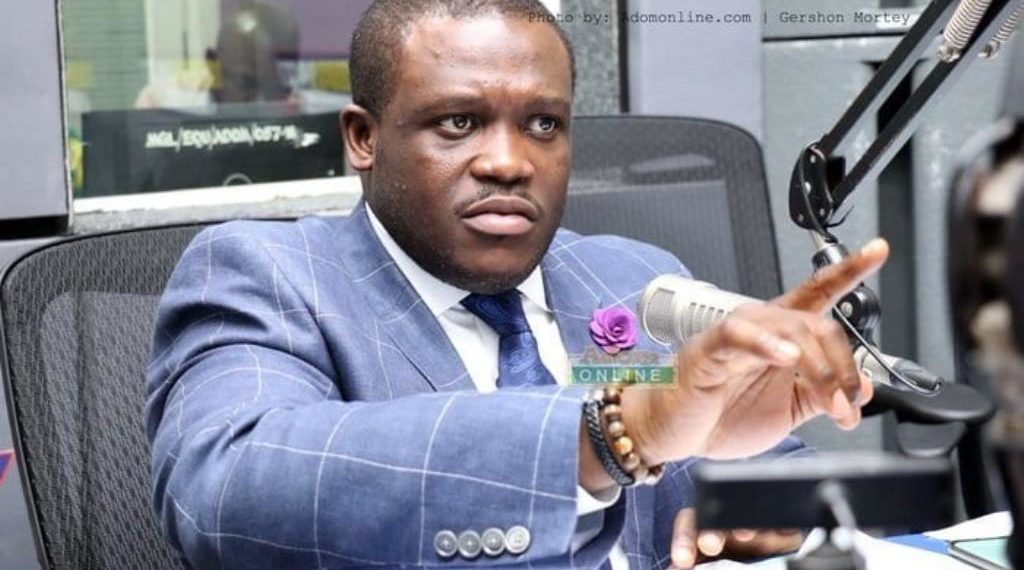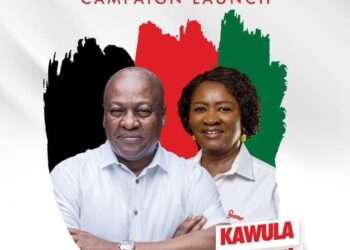Member of parliament for Ningo Prampram, Sam Nartey George, has disclosed that parliament is simply an appendage of the executive in relation to the ongoing ministerial vetting by the Appointments Committee in parliament.
Acording to him, so long as there are members of the legislature still serving in the executive, there cannot be separation of powers.
Citing the United States as a case in point, Mr George stated that in the US Congress, one cannot be a congressman and be in the executive, as it is also the case in Nigeria, where one cannot be a senator and be in the executive at the same time. This, he explained, is what “true separation of powers” is all about.
“It’s simple, we don’t have separation of powers in Ghana. Parliament is simply an appendage of the executive. You have a minister, appointed by the President, who sits in Cabinet, puts together a loan agreement or something, goes to parliament as part of the executive [and] gets it approved. Then, that same minister is an MP, comes to sit in the same parliament that’s supposed to scrutinize what cabinet has brought. He sits in court on his own matter and approves it and you’re telling me that you are separate. How are you separate?”
Sam Nartey George
Buttressing his point, Sam George recounted that in 2021, there was a situation where a member of the appointments committee sat as a member of parliament and vetted two members of the President’s nominees. However, he noted that the third nominee was the self-same person who only switched seats to be vetted.
“I mean how can you be part of a panel that is vetting you?… If an MP has no expectations of the President by way of appointment, you will do your job and do your job well…”
Sam Nartey George
Vetting process of ministers
Assessing the ministerial vetting process thus far, Sam George noted that it is the usual parliamentary process of fulfilling constitutional requirements, whereby the President makes his nominations, and they appear before the Appointment Committee of parliament to be vetted in determination of their suitability for office.
Nonetheless, he explained that overtime, there’s been questions about whether the process is exhausted by parliament or not.
“You see secretaries of state being vetted in the US Congress and at times one person goes for three days because you’re taking your time to ensure that the person who is going to occupy such high office, all the issues about the person is exhaustively dealt with. Our situation is different.
“In our situation, you have a case where you want to do three or four and sometimes five people in a day. You realize that members have questions they want to ask, and the Chairman is minded by time and so has to guide the process; this is not with the current Chairman. This has been the case of all parliaments…”
Sam Nartey George
Fundamentally, Sam George questioned whether the country is ready and willing to take a relook at the processes that are undertaken in parliament. He underscored that parliament is essentially “sacrificing the best information out of people on the altar” of getting things done quickly.
“Even in the public accounts committee that I sit on, there’re times you want to engage further an issue, but you’re guided by the Chairman, not because the Chairman is against further probing but he’s guided by time… But the question is are we looking for speed or efficiency? Who are we racing for? These are people who are coming to oversee our taxes. Should we not vet them well?”
Sam Nartey George
The Ningo Prampram legislator posited that the processes are like every other vetting and the NDC has resolved to kick against the nomination of the ministers since they are opposed to the size of government.
READ ALSO: NDC Opens Nominations For Presidential And Parliamentary Primaries Today





















